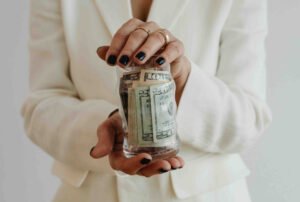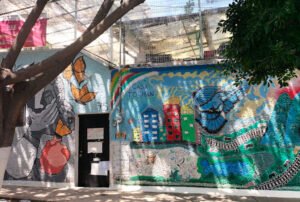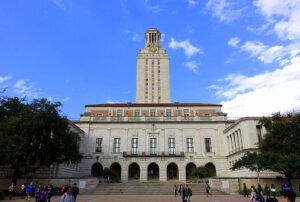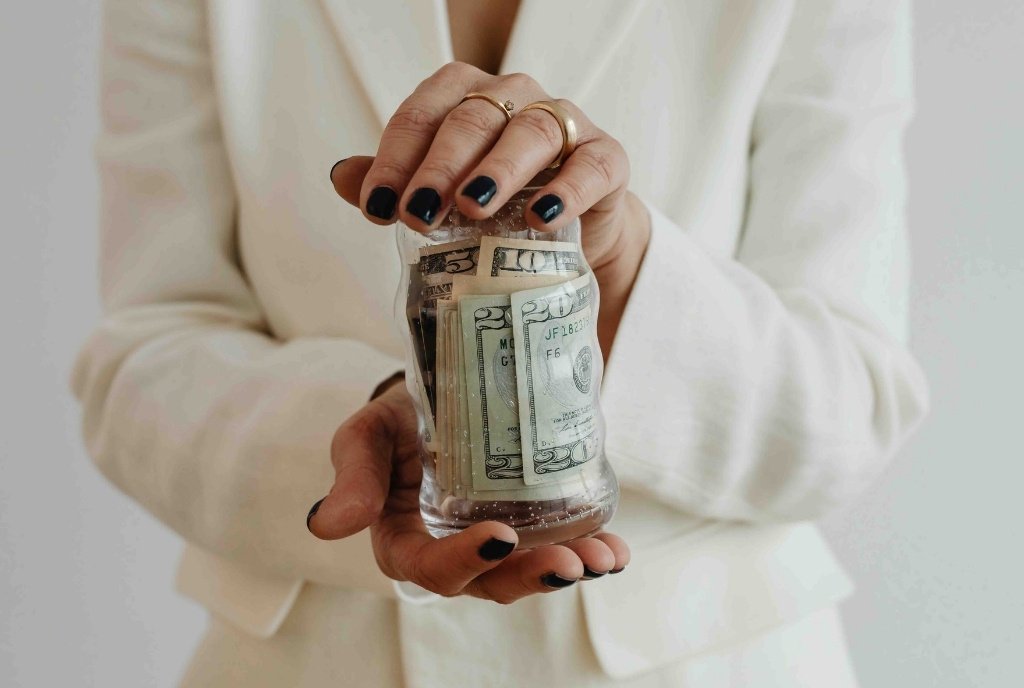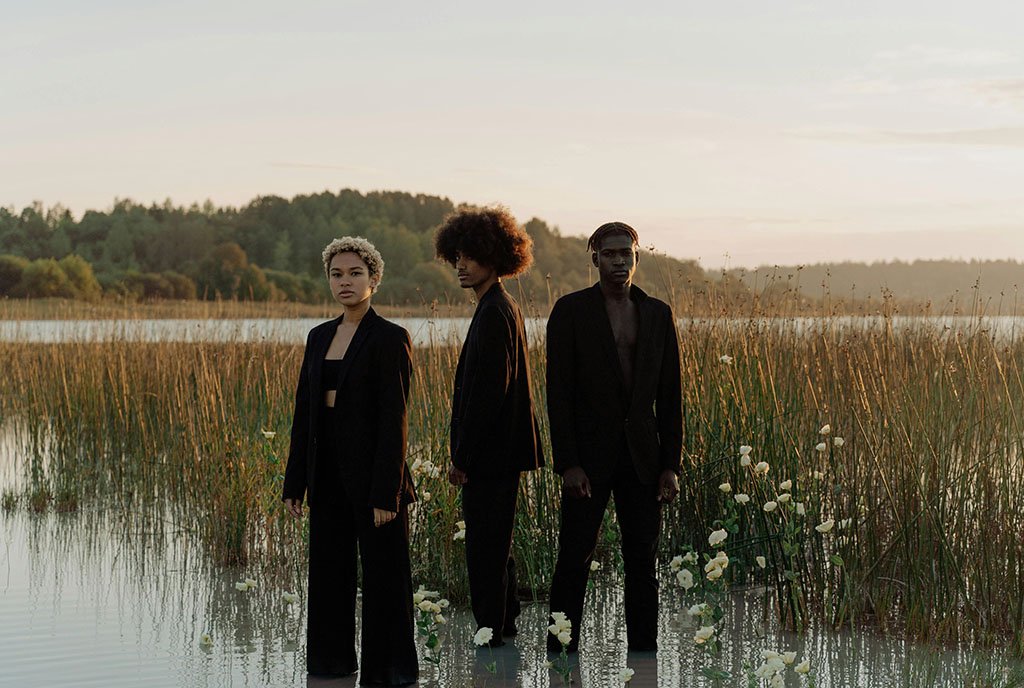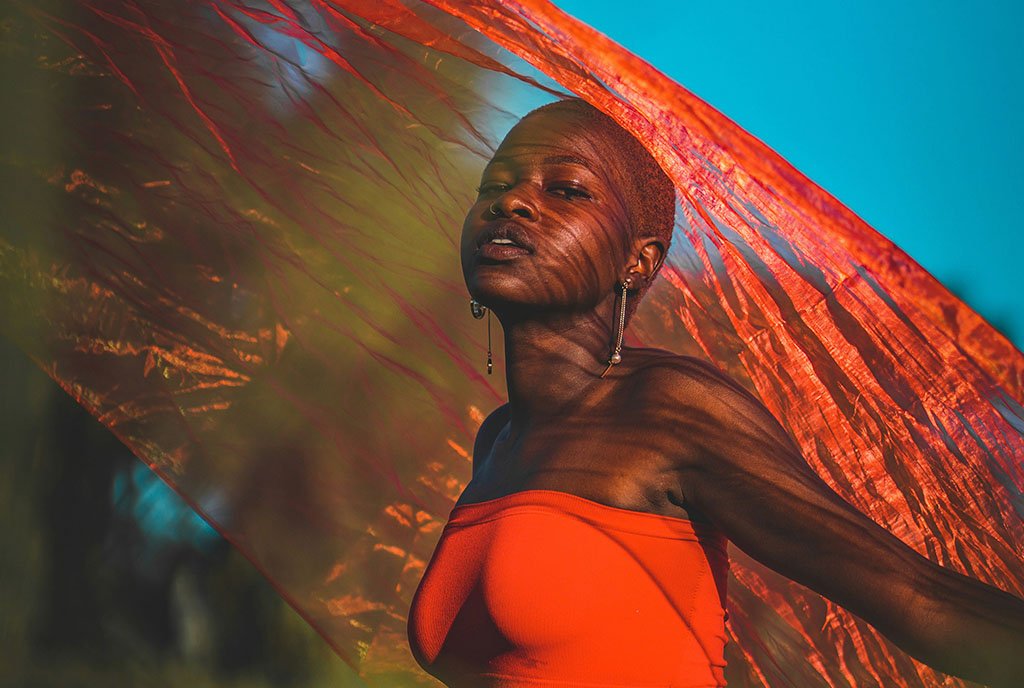
In this conversation with NPQ’s Rebekah Barber, Aida Mariam Davis discusses her book Kindred Creation; decolonization; self-reclamation; and critiques of meritocracy, systemic inequality, and performative reforms.
Rebekah Barber: Throughout your book, you incorporate lessons from your experience as a community organizer. How did these experiences inspire your decision to write Kindred Creation?
Aida Mariam Davis: I dedicate this book to my time as an organizer and all the places I spent time organizing. I had just been journaling, keeping these stories and experiences, and making sure that I don’t forget them. If you notice, the first part of the book is called “Remember.”
My writing has been very attached to the idea of remembering and bringing together these stories and ideas. In the proposal, I said I wrote this book for Aida. For me. For a Black immigrant woman who at the time was pregnant and disabled. I wanted something that spoke to me. Over the course of the book, it evolved to speaking to anyone who has suffered the indignity of assimilation and being asked to conform.
“It’s such a joy to be a Black woman—such a joy to be an organizer and all these really difficult things. I wanted to highlight that joy.”
Also, it’s such a joy to be a Black woman—such a joy to be an organizer and all these really difficult things. I wanted to highlight that joy. Writing this book and reflecting on my heritage and experiences were the things I tried to protect.
RB: One part of Kindred Creation that stood out to me was where you wrote to your readers, “Much of what is understood by you is based on the degree to which you connect with me.” Who would you say your core audience was as you were writing the book?
AMD: In the intro, I talk about the book being like a quilt—these discarded pieces of cloth that weren’t valued at the time but come together and create this beautiful artifact for warmth, art, and comfort.
I root [the book] in the Black and African tradition, but my neighbor, who happens to be a Persian Jew, as soon as he read that, said, “This speaks so deeply to me and my parents’ immigrant experience because they had quilts.”
I think people who know their history and care can find connections—whether they are of African descent or not. I didn’t have to do anything different about myself, but they searched and found a point that said, “Wow, we are so similar.” Oppressed people are similar.
The moment people know their heritage, I think this book becomes very powerful and enlightening. It offers a lot of language for experiences. I didn’t abandon myself to do that. I’m not doing that work for [the reader].
Part of the beauty of any book, any good piece of literature, is that you discover [it] on your own. When somebody tells you directly, it’s not the same as discovering….I think the audience is people ready to find sovereignty and solidarity, which feel very separate but are interconnected.
RB: You write about how you made this intentional decision to change the title of your book from Decolonized Design to Kindred Creation. How do you think the shift from decolonization to creation alters how readers receive your book?
AMD: Because decolonizing has become an idea everyone puts on everything—like “decolonizing food and computers.” It begins to lose meaning.
Decolonization tends to be violent in response to colonization. The company that I founded, Decolonize Design, used that same language, and over time, I started to consider, “Is my calling on earth to fix the things colonizers broke?”
I’m very much inspired by Audre Lorde, who said, “The master’s tools will not dismantle the master’s house.” But even that bothers my spirit. What if I don’t care about the master’s house? What if his whole way of life is irrelevant to me? I’m not going to fix it. I’m not going to use their tools. I’m not doing any of it.
“Decolonization is just a binary construct of the settler—if it’s not colonization, it’s the opposite. I wanted to offer an alternative to that.”
Decolonization is just a binary construct of the settler—if it’s not colonization, it’s the opposite. I wanted to offer an alternative to that. What would we do—we as Black people, we as Indigenous people, we as Africans—if their way of life had not touched us? Design, as you see in the book, is this very sterile, almost mechanical way of addressing problems. Creation is about giving something life. You create life. You create a book. It’s something that takes more from you, and it is more meaningful.
Those two words were hovering. What solidified it to me was kindred. Octavia Butler is one of my favorite writers. Her book, Kindred, is about remembering—going back to the past and understanding enslavement. It was a very powerful story. I felt like it was also giving homage to her and that story in the first part of the book.
Then creation as an African and Indigenous way of reclaiming our way of doing things. What if we don’t do things like our oppressors? To recall the first quote, you define a person’s capacity for liberation by how different their culture is from their oppressor’s. That’s what Amílcar Cabral said.
I really believe that if we are different, we’re not going to be violent. We’re not going to do the same things. I tried to weave those thoughts all the way through. I also wanted to show better than I can tell that I changed my mind. I named my whole company Decolonize Design, and now I’m saying I evolved out of it.
RB: When you first thought about writing Kindred Creation, it was at the time when the country’s racial and economic inequalities were put to the forefront in what has been called a “racial reckoning.” There were initial efforts to address racial disparities, but many of these efforts have been scaled back. What do you think were the prevailing lessons we saw in 2020?
AMD: I think this is a function of not growing up in the healthiest household. I will name that upfront because I believe I have this ability to notice patterns. These impulsive, performative, and vanity ways of addressing structural issues are something I have seen since I was very young.
In some ways, I hate that I was right. In 2020, I felt, even then, that this was vanity and performative. It also was not lost on me that “diversity, equity, and inclusion” was, on one hand, assimilationist.
I am only diverse because I’m not White. That’s the thing that makes me a diverse candidate. I’m not a part of your assumed standard….When you want me to be included, it’s because I’m not part of the default. That doesn’t sit right with my spirit.
Now, you amplify that in 2020 and say everything is DEI. Then, on the other hand, White women and gay White men are getting all of the work to address it. That doesn’t make sense to me.
Even the fact that I got commissioned for a book.…I feel very blessed, but I also was bamboozled in the end because they said, “Make this book appeal to White folk, or we’re not interested.” Then, I found a new publisher.
I think the 2020 moment was very disappointing. To be Native American or Black in this country is to experience these cycles of failed reforms and failed responses.
We don’t create it or lead it. It’s companies saying, “Hey, we now care about it.” It’s Fortune 500 companies saying, “Please don’t burn down our buildings.” That’s what was happening in 2020. Literal things were being protested, and people were enraged about George Floyd’s and Breonna Taylor’s murders—and so many others. Rather than structurally address it, they said, “Why don’t we just do this defensive mandate of DEI.” I’m not surprised that those things have now gone away.
“We are all we got. If we want to see change, we have to demand it. It’s not going to be given to us.”
We are all we got. I don’t know how else to say that. We are all we got. If we want to see change, we have to demand it. It’s not going to be given to us.
RB: You introduced your Belonging, Dignity, Justice, and Joy (BDJJ) framework in 2023. How have you seen progress made by leaning into this framework?
AMD: Belonging, Dignity, Justice, and Joy is a framework that doesn’t ask anyone to assimilate first. If what you’re searching for is belonging, that means nothing about you needs to change. Not your hairstyle, not the way you dress, not the way you talk. You don’t have to code-switch. It’s that feeling of being welcome. Who doesn’t want that?
If we were to make a comparison—if diversity means you are different than the norm, but belonging means as you are, you are welcome, accepted, and cherished—what would you choose?
Dignity means no matter what you do or what position you hold, you are worthy, and you have sacred personhood.
Sign up for our free newsletters
Subscribe to NPQ's newsletters to have our top stories delivered directly to your inbox.
By signing up, you agree to our privacy policy and terms of use, and to receive messages from NPQ and our partners.
“I think belonging, dignity, justice, and joy appeal to everyone.”
I think belonging, dignity, justice, and joy appeal to everyone. That being said, belonging, dignity, justice, and joy are designed for those most at the margins. It invokes the curb-cut effect from Angela Glover Blackwell, which is the idea that curb cuts were put on the side of curbs initially because they had demanded it through ADA. Now, every corner has a curb cut [because it benefits everyone].
Everybody uses it, but it was designed for the people with the most need: disabled people. BDJJ was designed for Black women, for queer people, for the most marginalized groups. Yet everyone can access it and feel their highest potential.
I worked for a retail company when I led Decolonized Design. One of our clients was one of the biggest clothing manufacturers. We encouraged them to sell shoes for only one foot. In other words, for people who are amputees.
It doesn’t cut from their bottom line. It’s not like they’re selling 1,000,000 of one shoe. They’re selling just a few, but it communicates to everyone their values. It also communicates to people who are disabled, “You can come here and know that we thought about you.” It’s an easy example in a literal sense. When you do that, it’s a net benefit for everyone in the social sector.
I’m currently the chief people officer at the Sierra Club. When evaluating our job description, I said, “We should explicitly say we don’t discriminate, but we can go further and say protective styles are welcome.” We know Black women, in particular, if they wear their hair a certain way, they’re treated differently.
We should talk about HIV/AIDS status. We should talk about these different things. Maybe it doesn’t impact a lot of people, but these are people we also want to recruit. We need to let them know it’s safe here, so it’s in our job descriptions.
A lot of this stuff is minor. Yes, you can overhaul a policy. In my role, we’re working on a handbook that reflects our values, but that’s a bigger undertaking. You could also amend things in a moment to communicate to people, “We see you. We know you exist, and we want you here.”
RB: Throughout Kindred Creation, you talk about how you observe things as an organizer. Your experience as a Black woman also gives you a particular lens. What do you think it takes for people who might not have the lived experience to do the work to ensure that marginalized people feel like they belong on the front end?
AMD: This is where I think White Americans struggle with assessing their heritage and acknowledging and owning our shared history, which is that somewhere down the line, your ancestors enslaved Black people if you’re White.
Own it—because we can’t get past that because you’re in denial. When we acknowledge our shared history, I think there is a release of culpability. We can now move forward in the truth. I think it’s what my Persian Jewish neighbor I was telling you about did, which is to know your own heritage.
This is a man who presents White. I live in an all-Black neighborhood. He is the only, “White” person in our neighborhood, but he’s hyper-aware.
Know your heritage because when you find out, for instance, that you’re White and Irish, you know that you come from a fighting people, a people who had to fight for their independence. You also come from a people who very quickly assimilated into Whiteness. How do you reconcile that?
In the same way, I started to deal with the fact that Ethiopia was never colonized, but I was told very quickly that Ethiopians act like colonizers. I talk about that in the book. Even if you talk to Eritreans, they’ll say Ethiopians occupied them. I have to accept that this is our shared history and that our lived experience can’t just be all one thing. It’s not a binary.
We need to begin to embrace the multiplicity of our experience. We need to find something to be proud of that’s not conquering, genocide, rape, destruction. We have to separate that and say, “What is beautiful about my heritage?” We all have those connections. For the vast majority, it is about understanding the multiplicity of your own identity and searching for connections or solidarity or cases where we have shared experiences but are distinct.
RB: One of the book’s themes that stood out to me the most is this idea of reclamation. What are you specifically hoping that readers reclaim after reading this book?
AMD: There’s a Nikki Giovanni poem called “Revolutionarzy Dreams.” In essence, the poem is about, and ends with, [the idea that] everybody can reach their revolutionary self if they return to their natural.
For me, I’m a poet. I’m actually not a chief people officer. That’s not my calling. It’s not saying I hate it, but it’s not what I’m on this earth to do.
It’s about reclaiming those parts of myself that have been socialized and conditioned so that I can be “successful” in this country. It’s about reclaiming those parts of yourself—the poet, the artist, the farmer, the things that aren’t by way of capitalism, important.
I think reclamation is saying, “I still exist, and I exist on my terms.”
Saying that is such a powerful thing—for anybody. I think if settlers, oppressors—people not motivated by lived experience—if they also reclaim parts of themselves, we’ll see a different kind of joy.
Especially in the last few months, we’ve seen a lot of scarcity thinking. “They’re taking my jobs.” But if you’re happy with what you’re doing and don’t need or want more, you won’t attack other people.
You’re going to invest in your own family, your own community, whatever it is.
RB: In what ways do you think this political moment offers opportunities for us to lean into kindred creation and form new bonds?
AMD: I love to recall Assata Shakur, “We have nothing to lose but our chains.”
By all accounts, Trump has been one of the worst presidents, especially vocally, for oppressed people.
I’ve been talking to elders, and they say, “We’ve been here before.” If you speak to former Panthers or civil rights activists, while this is very difficult and detrimental to our collective growth as a society, we’ve been here before in some ways.
This is who America has been for a while. The question is, “Are we willing to try a completely new alternative, or are we interested in continuing to reform?”
“Are you interested in decolonizing design, or are you interested in kindred creation?”
To put it in simpler terms, “Are you interested in decolonizing design, or are you interested in kindred creation?”
Imagine a world where you’re not thinking about what White folks are doing. We have examples of that, too. We can look at the Maroon people. There were people who had literally become fugitives and created their own societies. Their societies resembled African villages, but they had no money.
They bartered everything. They made sure everyone was taken care of. That was less than a hundred years ago. We’ve done that in this country.
I’m not saying we should go maroon now that Trump is in office or because of this political moment, but I do think we should take steps toward spiritual, psychological, and emotional independence.
That’s our domain that no one can touch. We can begin to assert ourselves because we have nothing to lose but our chains. Look at what’s happening in Gaza. Look at what’s happening in Congo. The world is on fire. We may not experience that personally, but it is. I think this work has always been urgent, but at this political moment, it’s even more urgent—and we have nothing to lose.


